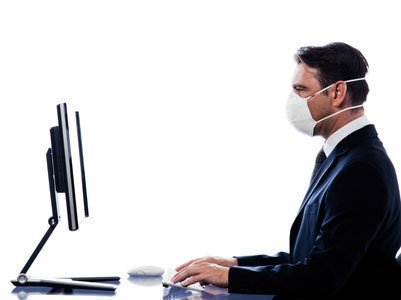How to Protect Myself from Viruses
The most common viruses are boot sector infectors. You can help protect yourself against those by write protecting all disks which you do not need write access to. Definitely keep a set of write protected floppy system disks. If you get a virus, it will make things much simpler. And, they are good for coasters. Only kidding.
Scan all incoming files with a recent copy of a good virus scanner. Among the best are F-Prot, Dr. Solomon’s Anti-virus Toolkit, and Thunderbyte Anti-Virus. AVP is also a good program. Using more than one scanner could be helpful. You may get those one or two viruses that the other guy happened to miss this month.
New viruses come out at the rate of about 8 per day now. NO scanner can keep up with them all, but the four mentioned here do the best job of keeping current. Any good scanner will detect the majority of common viruses. No virus scanner will detect all viruses.
Right now there are about 5600 known viruses. New ones are written all the time. If you use a scanner for virus detection, you need to make sure you get frequent updates. If you rely on behavior blockers, you should know that such programs can be bypassed easily by a technique known as tunnelling.
You may want to use integrity checkers as well as scanners. Keep in mind that while these can supply added protection, they are not foolproof.
You may want to use a particular kind of scanner, called resident scanners. Those are programs which stay resident in the computer memory and constantly monitor program execution (and sometimes even access to the files containing programs). If you try to execute a program, the resident scanner receives control and scans it first for known viruses. Only if no such viruses are found, the program is allowed to execute.
Most virus scanners will not protect you against many kinds of trojans, any sort of logic bombs, or worms. Theoretically, they could protect you against logic bombs and/or worms, by addition of scanning strings; however, this is rarely done.
The best, actually only way, to protect yourself is to know what you have on your system and make sure what you have there is authorized by you. Make frequent backups of all important files. Keep your DOS system files write protected. Write protect all disks that you do not need to write to. If you do get a virus, don’t panic. Call the support department of the company who supplies your anti-virus product if you aren’t sure of what you are doing. If the company you got your anti-virus software from does not have a good technical support department, change companies.
The best way to make sure viruses are not spread is not to spread them. Some people do this intentionally. We discourage this. Viruses aren’t cool.


Comments - No Responses to “How to Protect Myself from Viruses”
Sorry but comments are closed at this time.